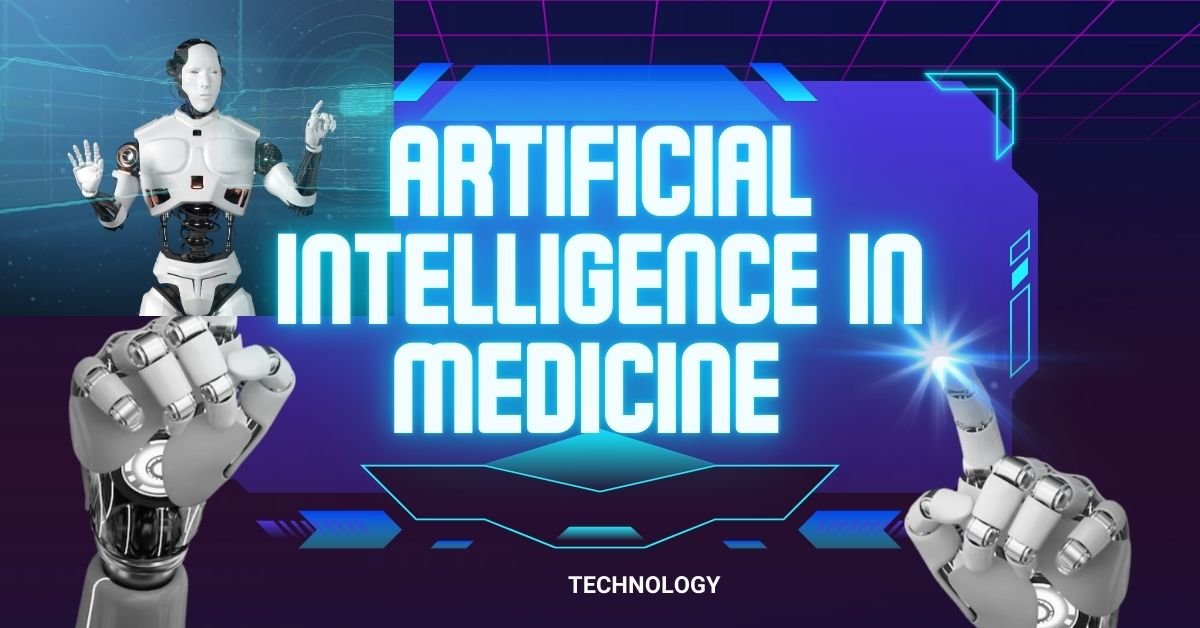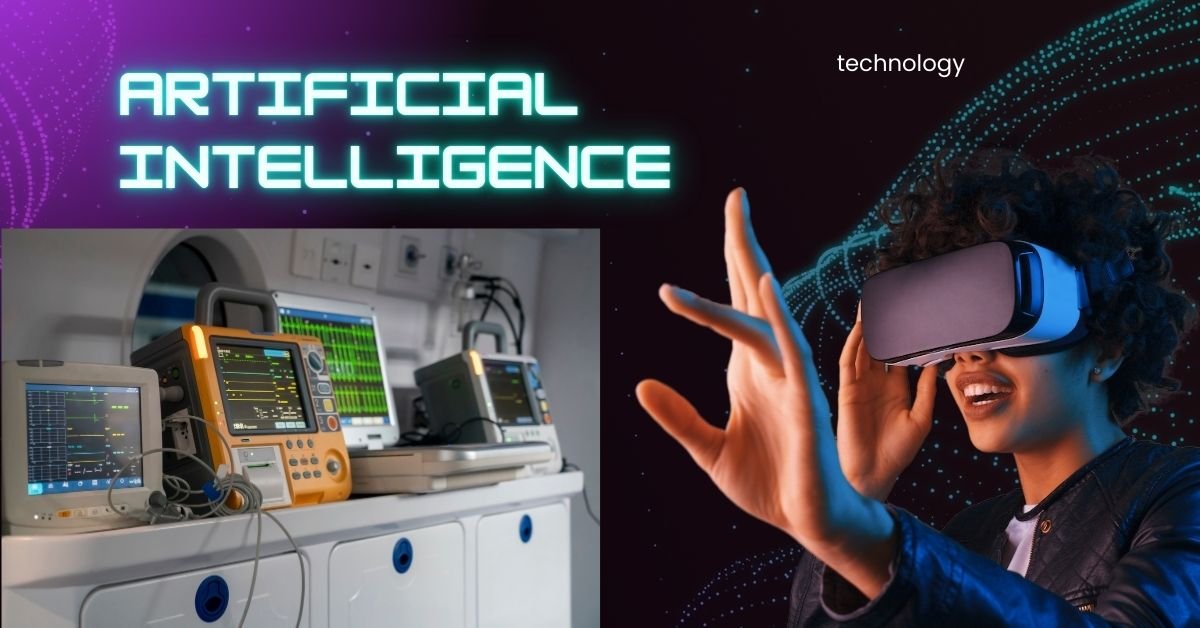
How is artificial intelligence used in medicine?
Thanks to recent advances in computer science and informatics, artificial intelligence (AI) is quickly becoming an integral part of modern healthcare. AI algorithms and other applications powered by AI are being used to support medical professionals in clinical settings and in ongoing research.

Currently, the most common roles for AI in medical settings are clinical decision support and imaging analysis. Clinical decision support tools help providers make decisions about treatments, medications, mental health and other patient needs by providing them with quick access to information or research that’s relevant to their patient. In medical imaging, AI tools are being used to analyze CT scans, x-rays, MRIs and other images for lesions or other findings that a human radiologist might miss.
What is medical artificial intelligence?
Using machine learning models to assist in processing medical data and provide medical personnel with valuable insights to improve patient experiences and health outcomes is known as artificial intelligence in medicine.
Numerous healthcare organizations worldwide have begun field-testing novel AI-supported technologies, such as algorithms for patient monitoring and AI-powered tools for COVID-19 patient screening, as a result of the difficulties the COVID-19 pandemic caused for many health systems.
The general guidelines for the application of artificial intelligence in medicine are still being developed, as are the studies and test results. However, there are more and more chances for AI to help researchers, physicians, and the patients they treat. There is currently little question that artificial intelligence (AI) will play a central role in the digital health systems that underpin and influence contemporary medicine.
Medical applications of AI
AI can have a lot of beneficial effects on medical practice, from accelerating research to assisting physicians in making better judgments.

Here are a few instances of potential applications for AI:
AI for diagnosing and detecting diseases
AI does not require sleep, in contrast to humans. Critical care patients’ vital signs might be monitored by machine learning algorithms, which could notify doctors if specific risk indicators rise. Vital indicators may be tracked by medical devices like heart monitors, but artificial intelligence (AI) can gather the data and search for more complicated illnesses like sepsis. A predictive artificial intelligence in medicine model for premature newborns that is 75% accurate in identifying serious sepsis has been created by an IBM client.
Individualized care for illnesses
With virtual artificial intelligence in medicine help, precision medicine could be easier to support. AI has the ability to offer patients personalized real-time recommendations 24/7 since its models are able to learn and remember preferences. A healthcare system might provide patients with 24/7 access to an AI-powered virtual assistant that could respond to inquiries based on the patient’s medical history, preferences, and individual needs, eliminating the need to repeat information with a different person each time.
Medical imaging with AI
Medical imaging is already heavily reliant on AI. According to research, artificial intelligence (AI) driven by neural networks can identify breast cancer and other illnesses with an accuracy level comparable to that of human radiologists. By identifying important details of a patient’s medical history and displaying the pertinent photographs to them, AI can assist physicians in identifying early indicators of illness and in managing the overwhelming volume of medical images they must monitor.
Efficiency of clinical trials
During clinical trials, a significant amount of work is devoted to updating pertinent databases and assigning medical codes to patient outcomes. By offering a faster and more intelligent search for medical codes, artificial intelligence in medicine can aid in expediting this procedure. Recently, two IBM Watson Health clients discovered that they could cut their medical code searches by over 70% by utilizing AI.
Quicker medication development
One of the most time-consuming and expensive aspects of medication development is frequently drug discovery. AI has the potential to lower the cost of producing new medications in two main ways: by improving drug designs and identifying viable new drug combinations. Many of the big data issues that the life sciences sector is currently facing might be resolved with AI.
AI’s advantages in medicine
Knowledgeable patient care
Healthcare professionals can gain important context when making decisions about patient care by incorporating medical AI into their processes. By providing doctors with useful search results that include evidence-based insights regarding procedures and therapies while the patient is still in the same room, a trained machine learning algorithm can assist reduce the amount of time they spend conducting research.
Error minimization
Evidence suggests that AI may contribute to increased patient safety. According to a recent systemic evaluation (link sits outside ibm.com) of 53 peer-reviewed research looking at how AI affects patient safety, artificial intelligence in medicine powered decision support tools can enhance medication management and error detection.
Lowering healthcare expenses
AI has the potential to lower costs in the healthcare sector in a number of ways. Reducing prescription errors, providing personalized virtual health support, preventing fraud, and facilitating more effective clinical and administrative procedures are some of the most exciting prospects.
Increasing the interaction between patients and doctors
A lot of patients have questions after regular business hours. When a patient’s provider’s office is closed, AI can assist in providing round-the-clock care by enabling chatbots to respond to simple inquiries and provide resources. Artificial Intelligence in medicine may also be used to flag information for more review and triage questions, which could assist notify healthcare providers of health changes that require more attention.
Adding context-relevant information
The ability of AI algorithms to differentiate between various kinds of information based on context is a significant benefit of deep learning. A well-trained AI algorithm can use natural language processing to determine which medications belong in the patient’s medical history, for instance, if a clinical note lists the patient’s current prescriptions along with a new medication that their provider advises.
The term artificial intelligence (AI) refers to the general idea that intelligent behavior can be modeled by a computer with little assistance from humans. Most people agree that the development of robots marked the beginning of artificial intelligence. The word comes from the Czech word robota, which means forced labor with biosynthetic machines. The growing use of robotic-assisted surgery, which bears Leonardo Da Vinci’s name, for intricate urologic and gynecologic procedures is one example of his lasting legacy in this field. This invention was facilitated by Da Vinci’s robot sketchbooks. In 1956, artificial intelligence (AI) was formally established as the science and engineering of creating intelligent machines.
The phrase can refer to a wide range of medical topics, including human biology, medical diagnosis, robotics, and statistics—up to and including today’s “omics.” The two primary fields of artificial intelligence in medicine—the subject of this review—are virtual and physical. The virtual branch encompasses informatics techniques ranging from deep learning information management to active physician guidance in treatment decisions and control of health management systems, including electronic health records. Robots that help the attending surgeon or an old patient are the best examples of the physical branch. This field also includes targeted nanorobots, a novel approach to medicine delivery. These applications’ complicated social and ethical implications call for more consideration, evidence of their therapeutic benefits, and economic worth.
It is widely acknowledged that the development of robots marked the beginning of artificial intelligence (AI). In his 1921 drama “R.U. R” (Rossum’s Universal Robots), author Karel Capek first used the word “robot,” which is spelled “robota” in Czech. It represented a factory where forced work is performed by biosynthetic machines. Isaac Asimov coined the term “robot” in the middle of the 20th century in a collection of contemporary science-fiction short stories. However, the earliest known reference to a humanoid automaton dates back to the third century in China, when Yan Shi, a mechanical engineer, showed Emperor Mu of Zhou a human-shaped mechanical device constructed from leather, wood, and artificial organs.

In honor of his inspirational influence, the American company Intuitive Surgical named a surgical system after him. The Food and Drug Administration (FDA) authorized it in 2000, and there are already more than 5000 units operating globally. A surgeon may operate a Da Vinci surgical system from a console, enabling sophisticated surgery using a minimally invasive technique. Prostatectomies and other gynecologic surgical procedures frequently employ the system. It is beginning to be applied to the repair of heart valves.
AI is now regarded as a technical field that applies innovative ideas and creative ways to tackle difficult problems. Computers may eventually surpass humans in intelligence if advancements in electronic speed, capacity, and software development continue. The significant contribution that modern cybernetics has made to the advancement of artificial intelligence cannot be overlooked.
Using technology that investigates system regulation, structure, and constraints—most notably mechanical, physical, biological, and social—cybernetics, a transdisciplinary approach, seeks to regulate any system. Norbert Wiener is credited with founding cybernetics.
He established the concept of feedback, which has ramifications for computer science, biology, neuroscience, engineering, systems control, philosophy, and social organization. If we take out game theory, the fields that were most impacted by cybernetics are systems theory, sociology, psychology (particularly cognitive and neuropsychology), and theory of organizations.
There is a wealth of unrestricted literature about Artificial Intelligence in medicine today. During the 2015 Davos economic meeting, AI was presented as a potential threat to the global economy. Stephen Hawking even voiced his concern that c might eventually wipe out humans. The use of this quickly evolving sector in manufacturing, transportation, security, or the military will not be covered here; rather, our chapter will concentrate on medicine and health systems.



